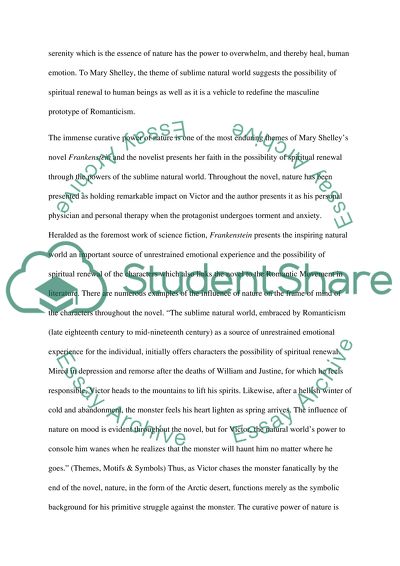Cite this document
(“The theme of nature in Mary Shelley's Frankenstein Book Report/Review”, n.d.)
Retrieved from https://studentshare.org/literature/1531673-the-theme-of-nature-in-mary-shelleys-frankenstein
Retrieved from https://studentshare.org/literature/1531673-the-theme-of-nature-in-mary-shelleys-frankenstein
(The Theme of Nature in Mary Shelley'S Frankenstein Book Report/Review)
https://studentshare.org/literature/1531673-the-theme-of-nature-in-mary-shelleys-frankenstein.
https://studentshare.org/literature/1531673-the-theme-of-nature-in-mary-shelleys-frankenstein.
“The Theme of Nature in Mary Shelley'S Frankenstein Book Report/Review”, n.d. https://studentshare.org/literature/1531673-the-theme-of-nature-in-mary-shelleys-frankenstein.


